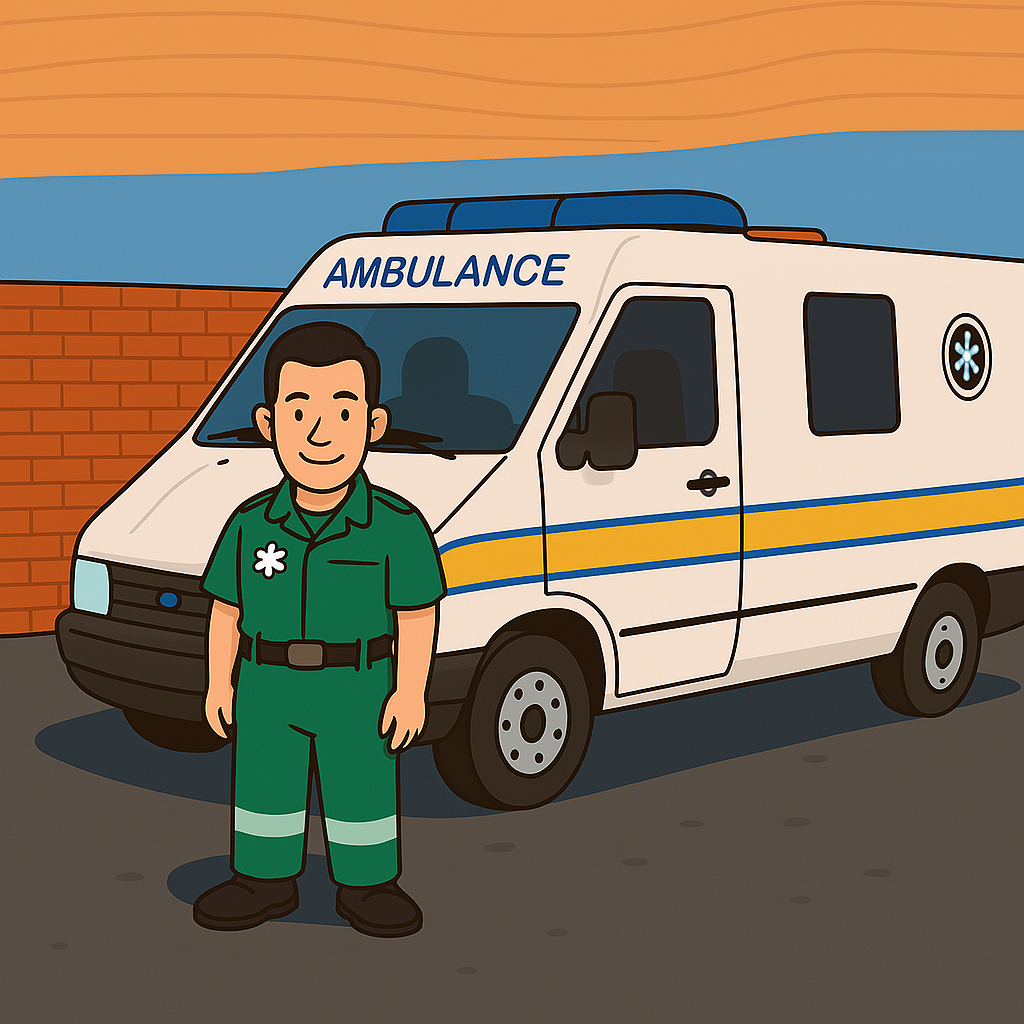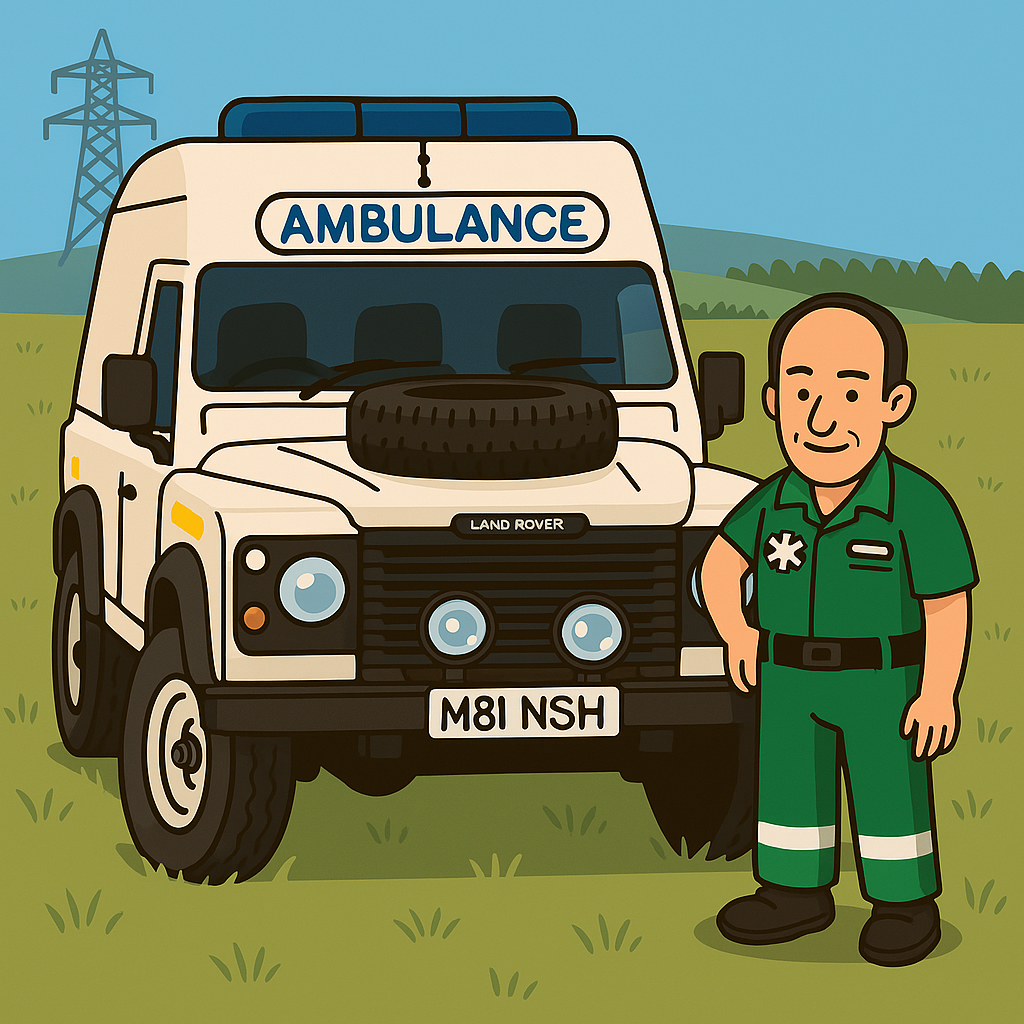⚠️ HEAT WAVE WARNING
💧 Stay hydrated | 🌞 Avoid sun 11 AM - 3 PM | 👕 Wear light clothing | ❤️ Check on vulnerable neighbours
🚨 If feeling dizzy or unwell: call 999
🚑 NEAREST DEFIBRILLATORS — FIND & ACT FAST
In an emergency, always call 999 first.
🌧️ UK National Weather Alerts
- Loading weather alerts...
🚨 Report to Police
Report a Crime or Incident Online
UK Emergency Numbers (Disaster Response)
999 — Fire, Police, Ambulance (life-threatening emergency)
112 — EU standard emergency number (works same as 999)
101 — Non-urgent police
111 — NHS medical advice (non-emergency)
105 — Power outage helpline (electricity emergencies)
For Widdrington Station: Missing kids, vulnerable adults, and desperate emergencies — call Gareth 07811 130808.
Please do not abuse this number.
🚨 Local Facilities That Could Help in a Disaster
1️⃣ Community Buildings / Potential Emergency Shelters
- Widdrington Community Centre — Often the hub for local events, this could be used as a shelter or coordination point in emergencies.
- Village Hall / Church Halls — These buildings are typically designated gathering points during disasters.
- Local schools (if any nearby) — Schools are often designated emergency shelters in the UK.
2️⃣ Medical Help
- Nearest GP surgery — Widdrington Health Centre (or your registered surgery in Morpeth or Amble).
- Nearest pharmacy — Widdrington Pharmacy or others in Morpeth / Ashington.
- Hospitals — The nearest A&E departments would be at:
- Northumbria Specialist Emergency Care Hospital (Cramlington)
- Wansbeck General Hospital (Ashington)
3️⃣ Transport / Evacuation Routes
- Widdrington Railway Station — Could provide evacuation options if rail services are running.
- A1068 and A1 — Main roads for emergency services and evacuation.
4️⃣ Emergency Services
Covered by Northumberland Fire & Rescue, Northumbria Police, and North East Ambulance Service — they have coordinated disaster response plans for the region.
5️⃣ Other Resources
- Local shops / Co-op / petrol station — Useful for emergency supplies.
- Nearby farms and open spaces — Could be gathering points or helicopter landing sites if needed.
Home Preparation
Secure your house to withstand threats and keep your family safe.
Shelter Planning
Learn how to build and maintain a reliable shelter.
Survival Kits
What to pack to survive and thrive during emergencies.
Radiation Emergency
Step-by-step actions to protect yourself from radiation hazards.
First Aid
Critical medical advice when professional help isn’t available.
Supply Guide
How to stock and ration essential supplies.
Village Map
View Widdrington Station and key locations on the map.
🚑 Paramedic Quiz
Test your advanced paramedic skills with this interactive quiz.
💊 Pharmaceuticals Quiz
Test your knowledge of advanced pharmaceuticals.
🫀 CPR Guide
Learn life-saving CPR techniques.
Home Preparation
Preparing your home is the first line of defense against emergencies. Secure doors and windows with sturdy locks, reinforce weak points, and install smoke and carbon monoxide detectors. Consider having emergency tools accessible such as fire extinguishers, flashlights, and basic repair supplies.
Make a family emergency plan that includes evacuation routes, meeting points, and communication methods. Regularly practice drills to ensure everyone knows what to do in case of fire, flood, or other disasters. Keep important documents in waterproof, fireproof containers.
Shelter Planning
Building a reliable shelter can provide vital protection during emergencies. Identify a safe room in your home or construct a dedicated shelter space designed to withstand local hazards such as floods, storms, or fallout. Ensure it has adequate ventilation, emergency supplies, and communication tools.
Stock your shelter with essentials like water, non-perishable food, first aid kits, blankets, and sanitation supplies. Regularly inspect and maintain the shelter’s integrity, replacing expired supplies and testing equipment. Familiarize all household members with the shelter location and its usage.
Survival Kits
A well-prepared survival kit can mean the difference between life and death. Include water purification tablets, high-energy snacks, a multi-tool, fire starters, a whistle, and emergency blankets. Personalize your kit to include medications, hygiene products, and any special needs.
Keep your survival kit in an easily accessible location and review it regularly to replenish expired items. Consider having kits for different scenarios such as car kits, work kits, and home kits. Training on how to use your kit effectively is highly recommended.
Radiation Emergency
In the event of a radiation emergency, seek shelter immediately, preferably in a basement or interior room with no windows. Seal doors and vents with tape and plastic sheeting to reduce contamination.
Listen to official updates via radio or emergency broadcasts. Avoid consuming potentially contaminated food or water. If exposed, remove outer clothing carefully and wash thoroughly with soap and water.
Prepare a radiation emergency kit with potassium iodide tablets if recommended by authorities, dosimeters, and protective clothing. Understand evacuation procedures and routes for your area.
First Aid
When professional medical help is not immediately available, knowing first aid can save lives. Learn how to control bleeding, perform wound cleaning and dressing, and recognize signs of shock.
Basic CPR skills are essential and can be a lifesaver in cardiac emergencies. Keep a well-stocked first aid kit at home, in your vehicle, and at work. Regularly update your first aid training to stay confident and prepared.
Supply Guide
Stocking essential supplies ensures you are ready for prolonged emergencies. Store non-perishable food, drinking water (at least 3 days’ worth), batteries, and hygiene products.
Rotate supplies regularly to prevent spoilage. Include tools like manual can openers, portable chargers, and multi-purpose devices. Plan for special needs such as baby supplies, pet food, and prescription medications.
Village Map
The village map highlights key locations such as emergency shelters, hospitals, police stations, and evacuation routes within Widdrington Station.
Familiarize yourself with the map to navigate safely during disasters and help others in need. Keep a printed copy accessible and save an offline digital version on your mobile device.
🚑 Paramedic Quiz
Sharpen your advanced paramedic knowledge with our interactive quiz. Test scenarios on trauma care, advanced airway management, and emergency pharmacology.
Use this tool to stay prepared for real-life emergencies and improve your decision-making skills under pressure.
💊 Pharmaceuticals Quiz
Challenge your understanding of pharmaceuticals used in emergency medicine. Learn about drug indications, dosages, contraindications, and side effects.
This quiz is ideal for healthcare professionals and those interested in medical preparedness.
🫀 CPR Guide
CPR (Cardiopulmonary Resuscitation) is a critical lifesaving technique. Learn the step-by-step process to perform effective chest compressions and rescue breaths.
Regular practice and certification can increase confidence and improve outcomes in cardiac emergencies.


